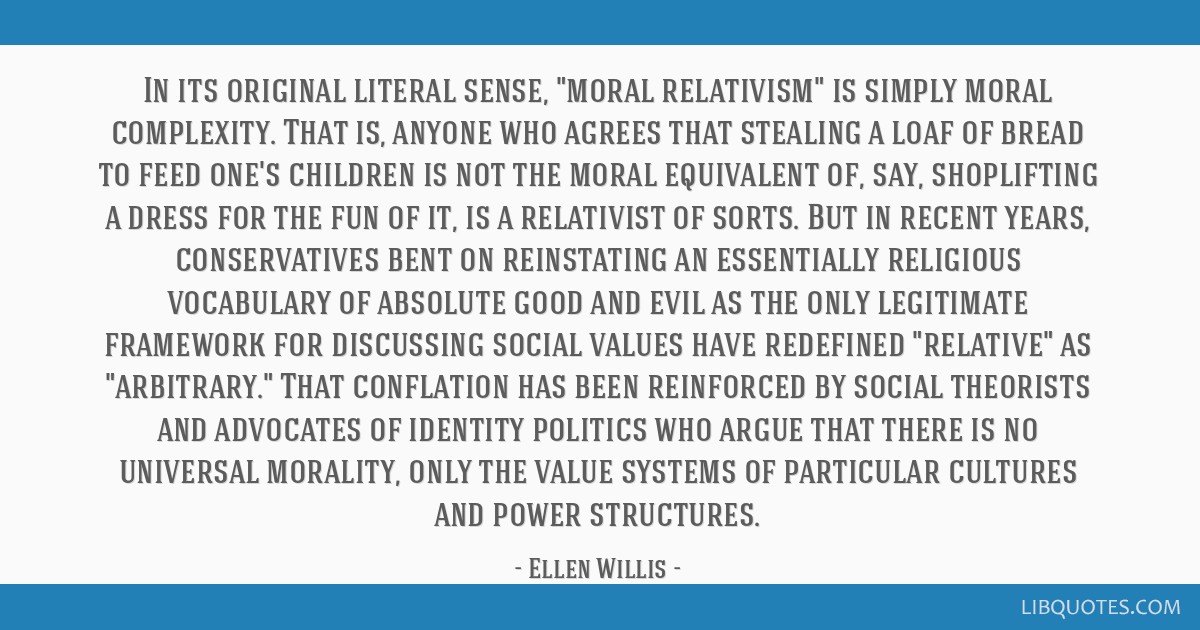In its original literal sense, "moral relativism" is simply moral complexity. That is, anyone who agrees that stealing a loaf of bread to feed one's children is not the moral equivalent of, say, shoplifting a dress for the fun of it, is a relativist of sorts. But in recent years, conservatives bent on reinstating an essentially religious vocabulary of absolute good and evil as the only legitimate framework for discussing social values have redefined "relative" as "arbitrary." That conflation has been reinforced by social theorists and advocates of identity politics who argue that there is no universal morality, only the value systems of particular cultures and power structures.
"Our Mobsters, Ourselves", The Nation (2 April 2001)























